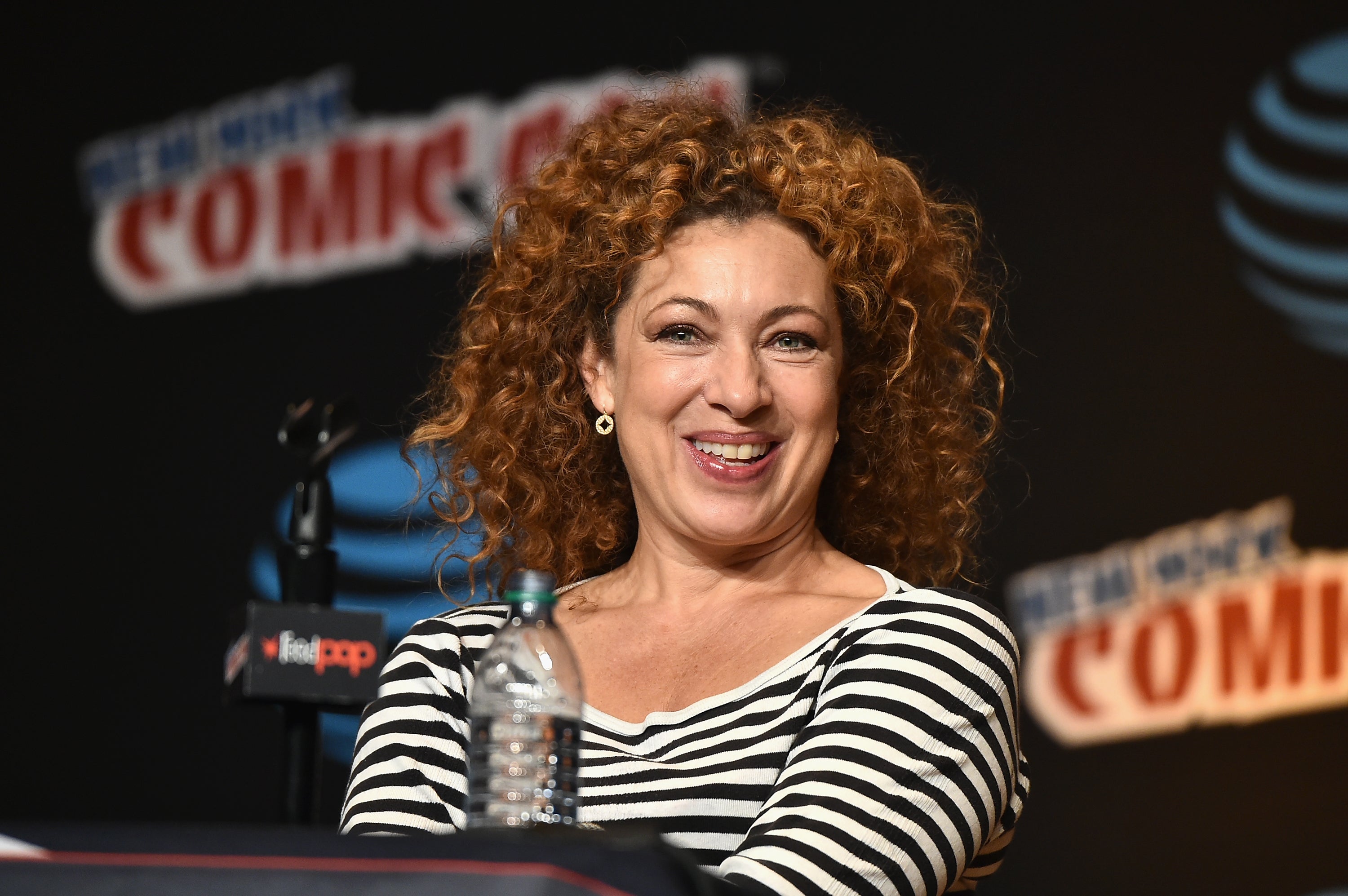Alex Kingston says she gets ‘really confused’ by pronouns
‘Doctor Who’ actor suggested cancel culture doesn’t allow sympathy for people who make mistakes

Your support helps us to tell the story
From reproductive rights to climate change to Big Tech, The Independent is on the ground when the story is developing. Whether it's investigating the financials of Elon Musk's pro-Trump PAC or producing our latest documentary, 'The A Word', which shines a light on the American women fighting for reproductive rights, we know how important it is to parse out the facts from the messaging.
At such a critical moment in US history, we need reporters on the ground. Your donation allows us to keep sending journalists to speak to both sides of the story.
The Independent is trusted by Americans across the entire political spectrum. And unlike many other quality news outlets, we choose not to lock Americans out of our reporting and analysis with paywalls. We believe quality journalism should be available to everyone, paid for by those who can afford it.
Your support makes all the difference.Alex Kingston has discussed getting “really confused” when trying to use a person’s chosen pronouns.
The 61-year-old actor, best known for playing Doctor Who’s time-travelling assassin River Song and Dr Elizabeth Corday in the US medical series ER, was discussing the topic of cancel culture when she said that her generation is “treading on eggshells, not knowing whether what you say will unintentionally hurt somebody”.
For instance, she said pronouns “confuse” her and suggested there is little sympathy for people who make a mistake.
“I’m just not confident with how and when to use them,” said Kingston. “There is no empathy or sympathy, opinions are immediate and black and white. I hope we’ll start coming back to a place where people can be kinder to each other, both in thinking about what they’re going to say and hearing what’s being said.”
Kingston was discussing cancel culture ahead of her forthcoming role in a new series titled Douglas Is Cancelled, which follows fictional newsreader Douglas Bellowes whose career is threatened when he is accused on Twitter/X of making an inappropriate joke at a private wedding speech.

Discussing the trajectory of Bellowes’s storyline, Kingston continued: “Cancel culture is terrifying,” before calling it “sort of fascistic”
“I don’t think people realise how dangerous cancelling people is, what that has meant historically,” she told The Telegraph.
When it comes to the cancellation of artists – when a public figure is boycotted by fans and, sometimes, societally shunned – Kingston said her choice to consume that person’s art is down to whether “what’s gone on will alter how I experience the film”.

She explained: “If I were to watch a Charlie Chaplin movie now, I couldn’t not be affected by knowing what was going on behind the scenes with the young women he’s acting with, because it’s telling a very different story to the one I’m watching.”

Watch Apple TV+ free for 7 days
New subscribers only. £8.99/mo. after free trial. Plan auto-renews until cancelled

Watch Apple TV+ free for 7 days
New subscribers only. £8.99/mo. after free trial. Plan auto-renews until cancelled
Speaking about the work of convicted sex offender Harvey Weinstein, she said he is not on screen so she can “forget about him and just watch these brilliant films”.
Elsewhere in the interview, Kingston took back her 2015 suggestion that the actor who plays Doctor Who “has to be a guy” – after seeing Jodie Whittaker become the first woman to play the part in 2017.
“I’ve met so many fans who identify completely with Jodie [Whittaker]’s Doctor, so I was wrong to be sceptical,” she admitted.
“I suppose I thought that because that’s how it had always been, that it was much more the world for little boys growing up. That also was totally wrong, because the genius of the show is that it’s such a broad church.”
Join our commenting forum
Join thought-provoking conversations, follow other Independent readers and see their replies
Comments